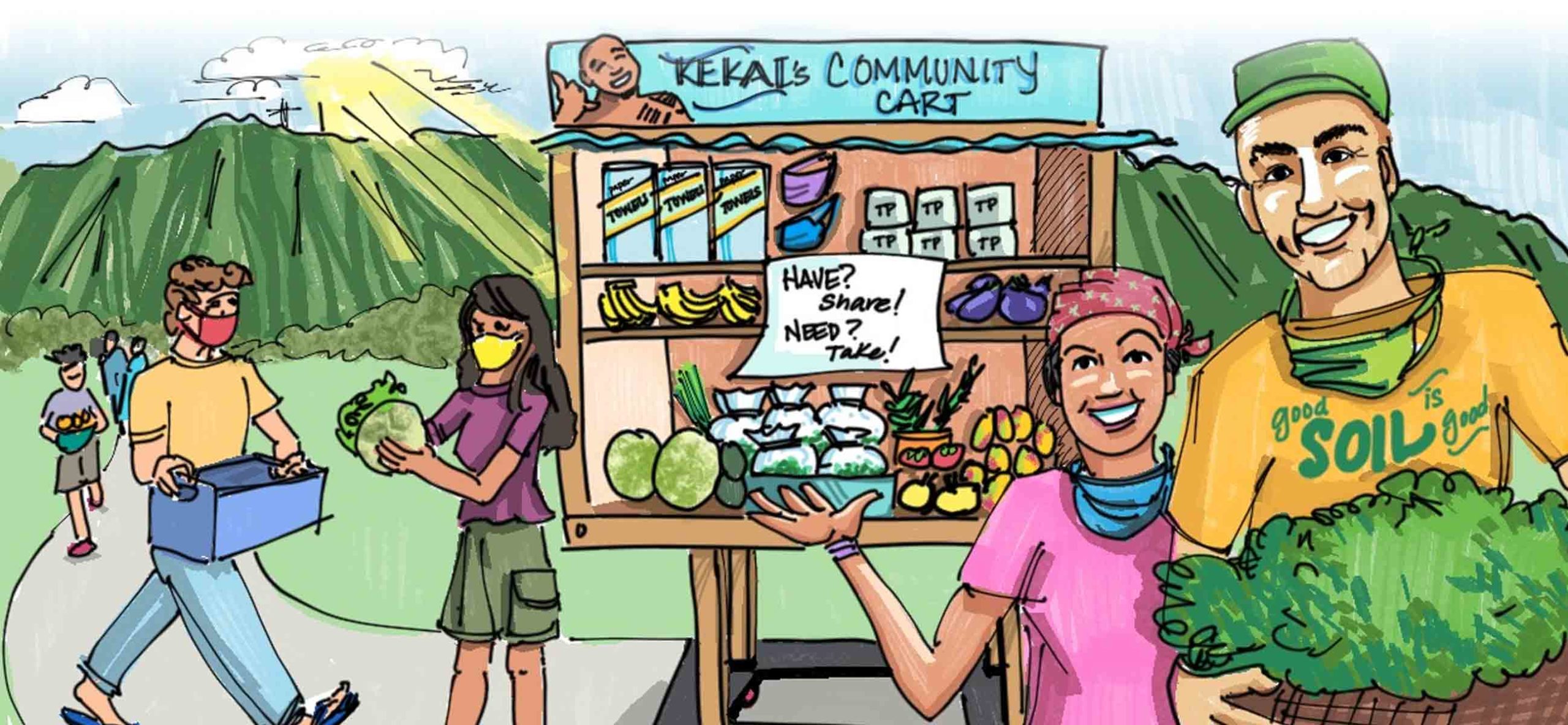Meet Vincent & Irene Min’a
Kahanu ‘Aina Greens
Maui, Hawaii
When most people think about a farm they think of needing to own a vast amount of acreage and produce at scale to be profitable. Well, friends, Kahanu ‘Aina Greens is proof that isn’t true. At just 2,500 square feet, they are thriving and growing as a profitable business.
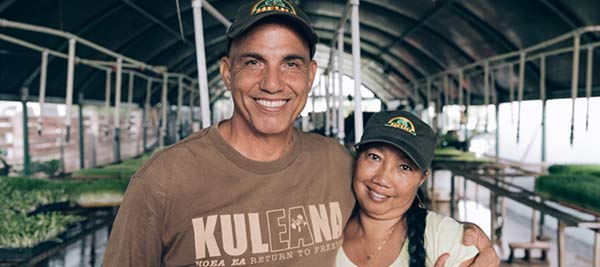
LOCATION:
Maui, Hawai’i
SUPPORT:
Hawai’i Farmers Union Foundation
Maui Food Hubs
Hawai’i Farmers Union United
SOCIAL:
And they did. They grew their own sunflower greens in their home and quickly realized it wasn’t only Irene’s craving, local neighbors in the community wanted them too. And just like that, more seeds were planted. And just like that, more seeds were planted. The microgreens grew, as did the demand, which would ultimately become Kahanu ‘Aina Greens (Breath of the Land), the homestead urban farm named after their daughter Kahanulani (Breath of Heaven), who started it all in utero.
His life continues to enrich the community as inspiration for Irene’s latest endeavor which she calls Kekai Community Cart. The cart is a center point in the community and is a tribute to their late son. It is purely a gift where neighbors can take what they need and also a place for them to give any abundance of food or supplies they might have. The giving spirit of Kekai lives on within the heart of the community.
Vincent considers their setup a blessing because the farm is part of their home so the entire family is connected and together more because of it.
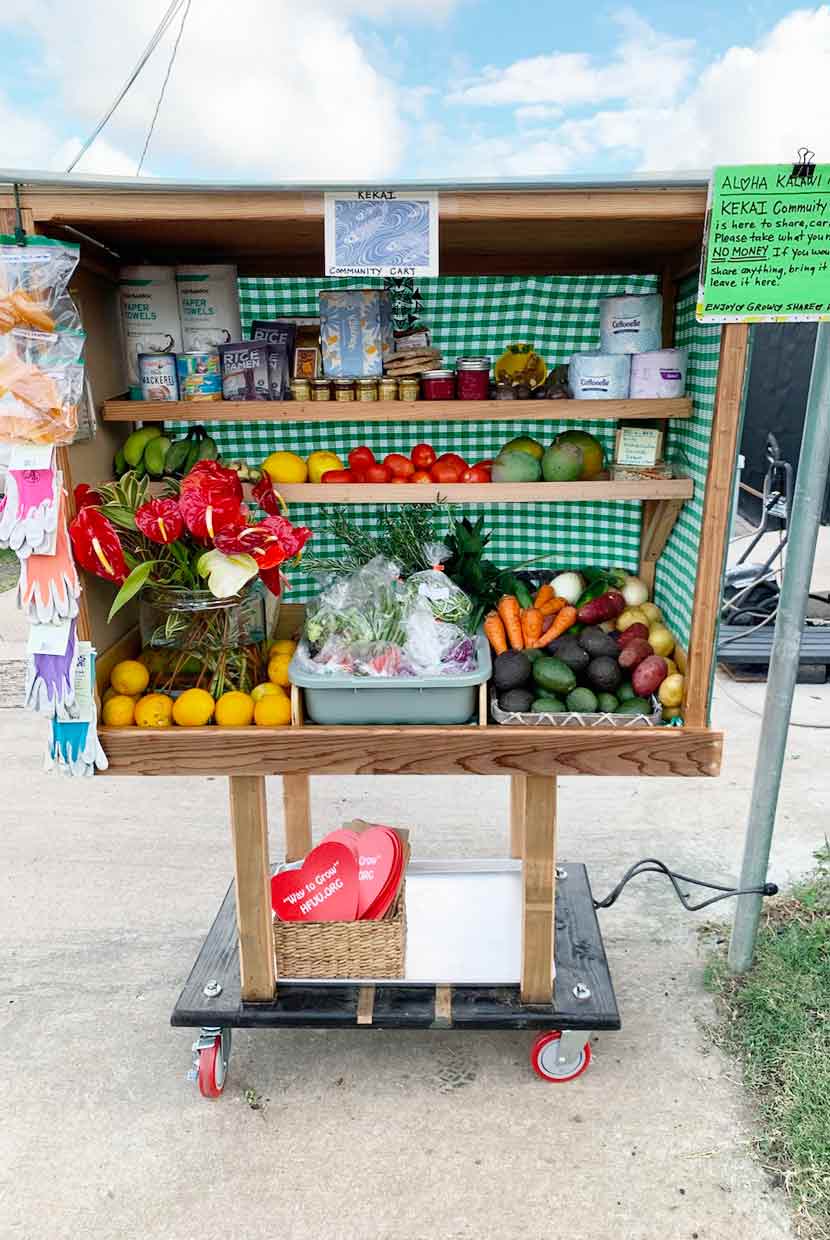
What makes Kahanu ‘Aina Greens different?
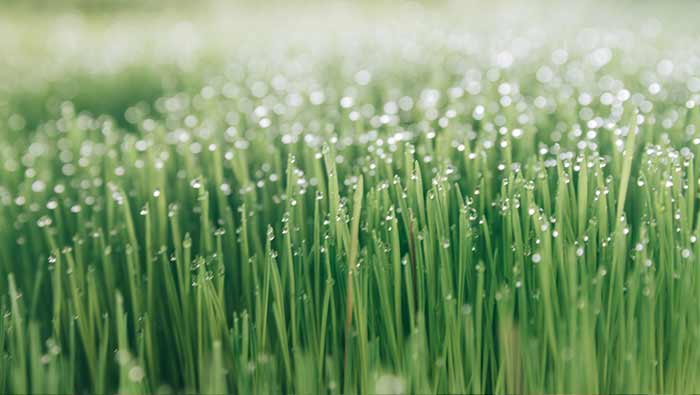
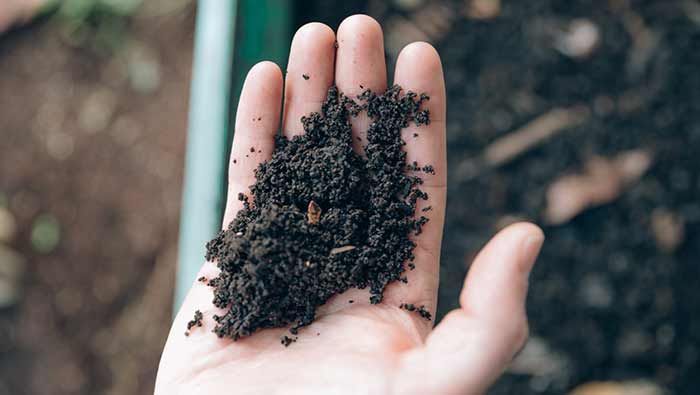
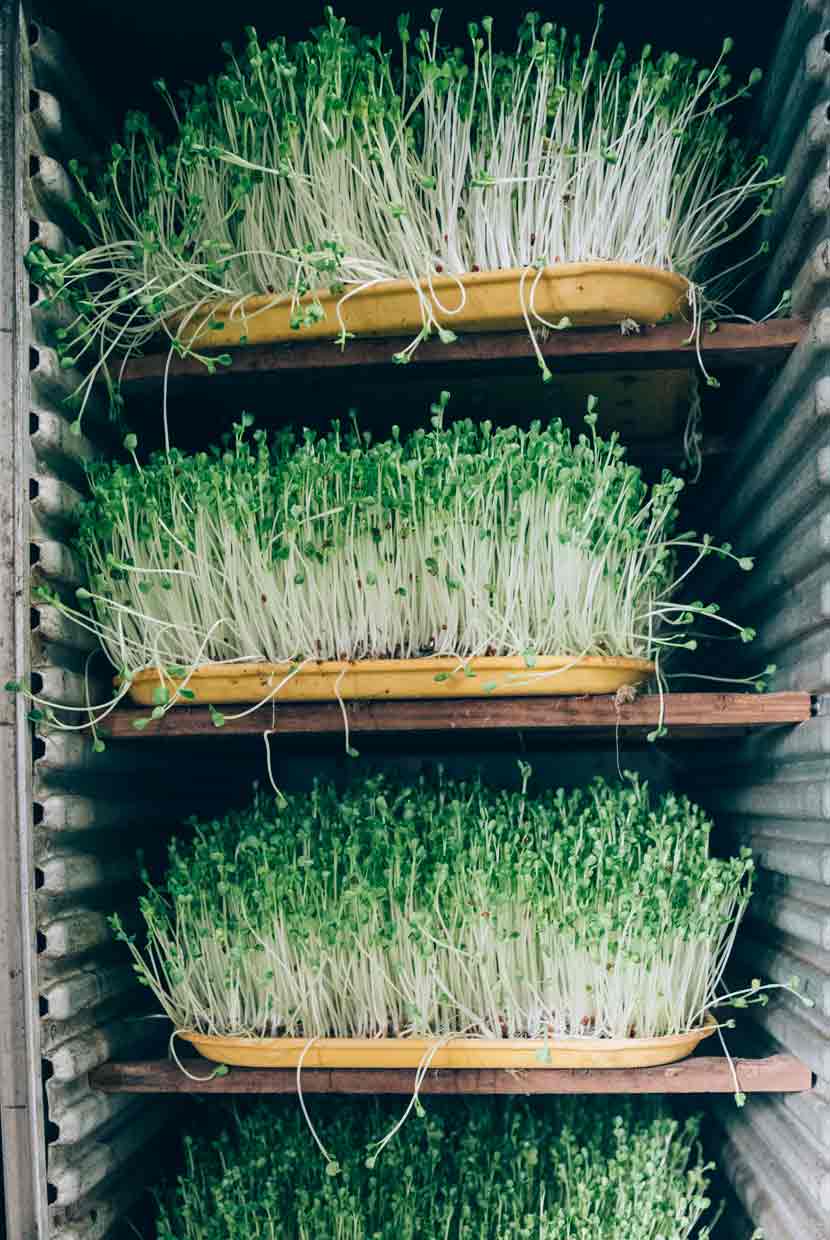
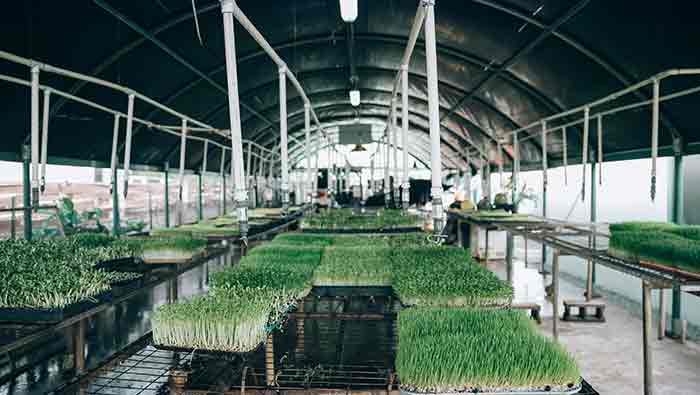
What does this operation look like now?
Just when you thought managing their own farm operation was enough, there’s more.
“We grow the soil before we grow the plants.”
With the vast majority of conventional farmers focused on the opposite – plants and output before the soil, there isn’t a natural collaboration between the farmer and the land. One is destroying the natural ecosystem within the soil for the sake of mass production which then produces food that is out of sync, full of petro-chemical inputs, and causes breakdown within the inner garden of the human body. Vincent asserts that if we, as farmers, are willing to work in cooperation with mother nature, everything has the capacity to do their best.
Vincent went on to say, “There is an alchemy of relationship. I feel connected to the land in that the soil and the land is working with me in collaboration because I’m in alignment with how it works.”
Not an ounce of soil is ever wasted, it is cherished and repurposed, every time. From the time the greens are cut, washed and bagged in their 400 sq ft processing area, they are ready within an hour to be delivered to local restaurants, grocery stores and hotels. The remaining bio mass and soil from harvested trays gets added to the compost to achieve a closed-loop sustainable system.
Just when you thought managing their own farm operation was enough, there’s more.
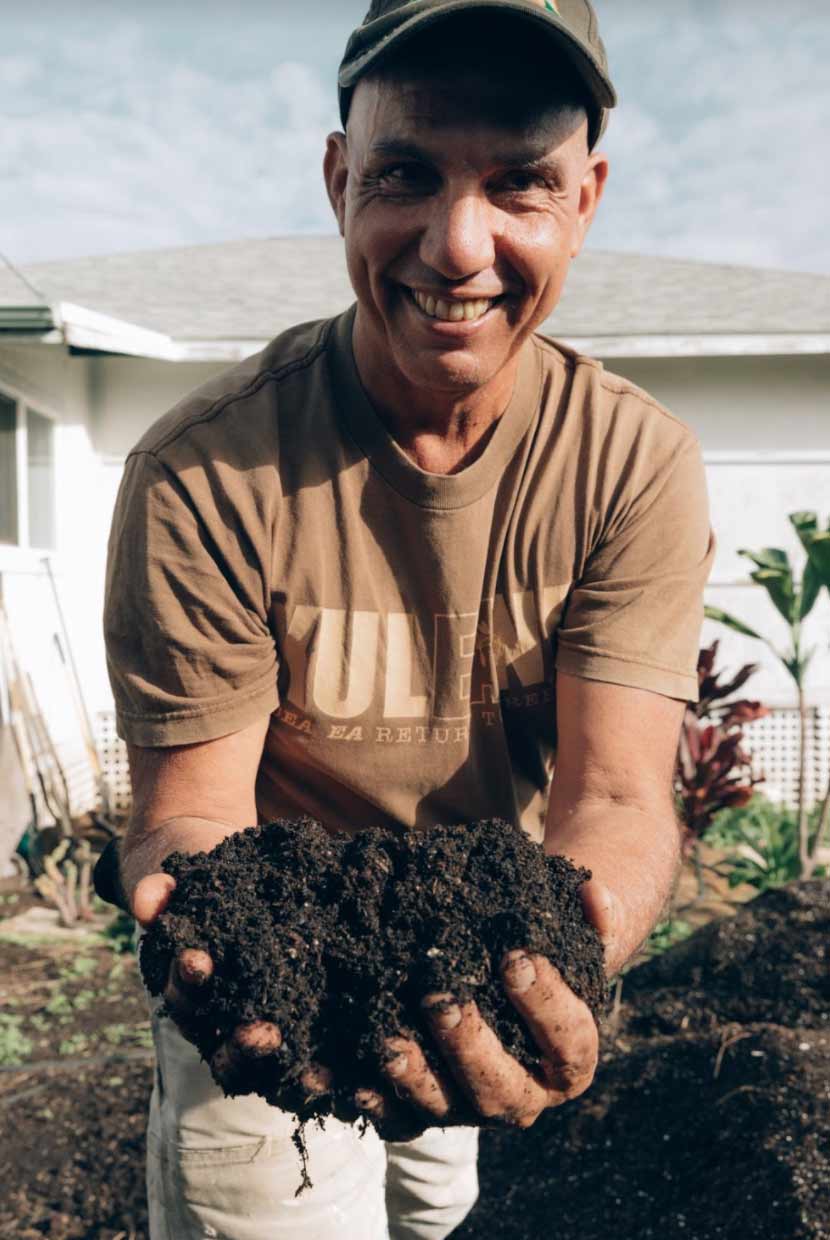
He is also the Chair of Hawai’i Farmers Union Foundation (HFUF), and serves as a Maui County Rep. on the Hawai’i Dept of Agriculture and serves as Chair of the Natl. Farmers Union special committee “Regenerative Agriculture Local Food” (RALF)
What would your advice be to farmers and those who have a desire to start a farm someday?
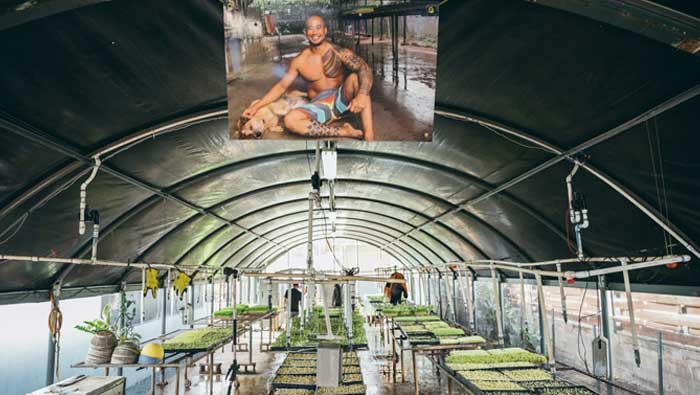
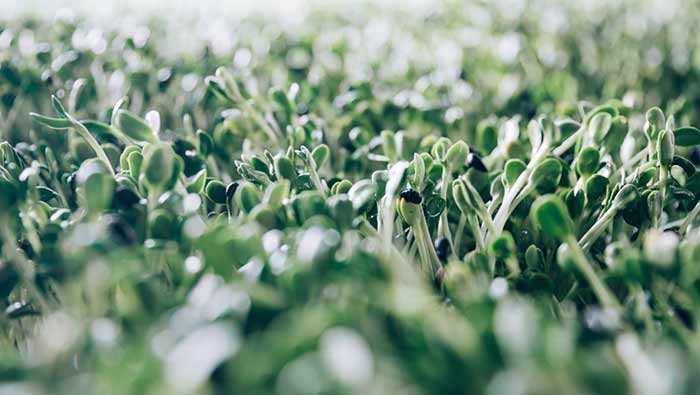
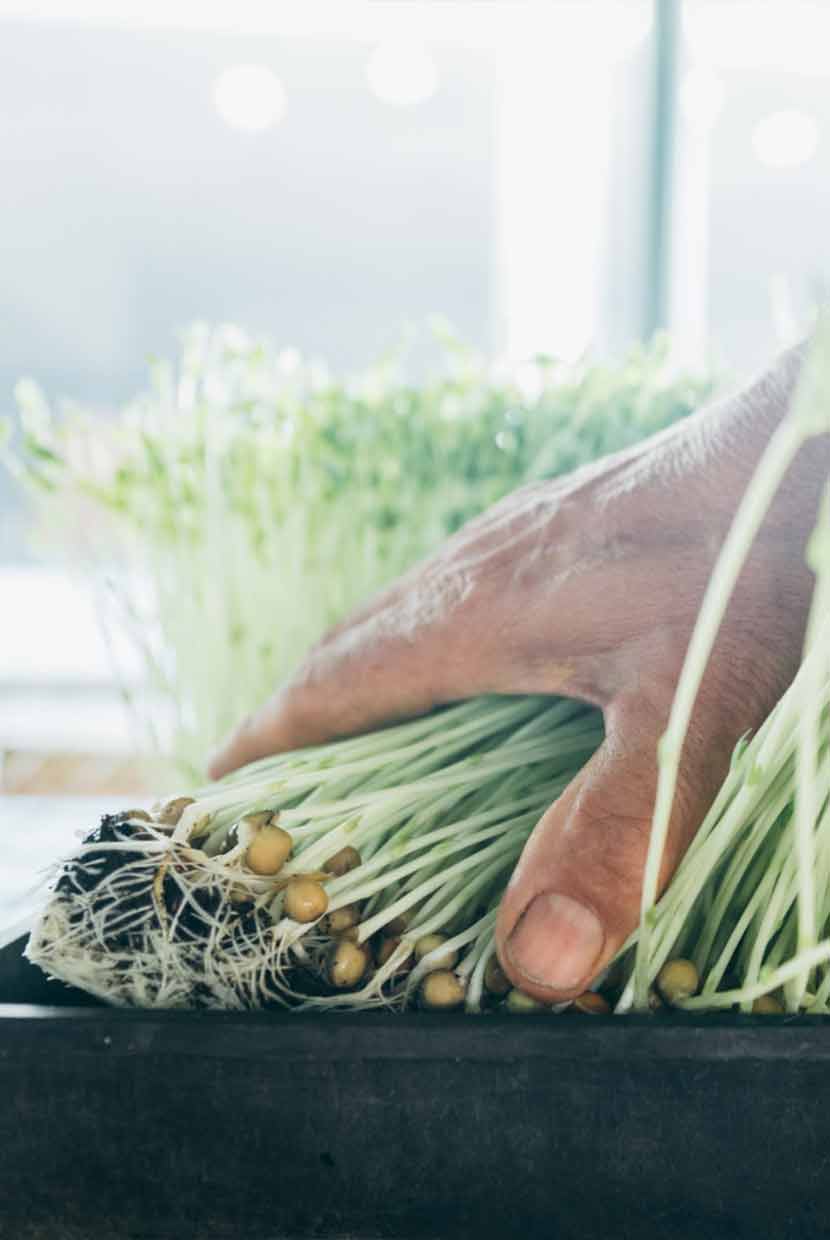
What is your vision for a regenerative future?
Vincent and Irene have an incredible operation and you can support them and learn more about what they are growing at the links below:
Hawai’i Farmers Union Foundation (HFUF)
Hawai’i Farmers Union United (HFUU)
501c-3 foundation doing educational outreach through our Farm Apprentice Mentoring Program among other initiatives.
